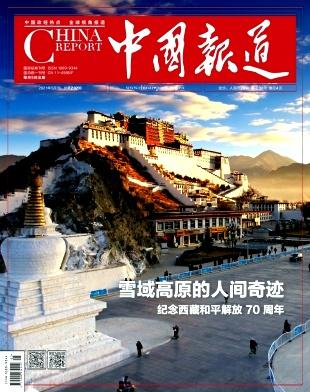中国酷儿观念的变迁与台湾模式
IF 0.7
Q3 AREA STUDIES
引用次数: 0
摘要
本研究探讨了中国酷儿认知的转变,这一转变在很大程度上受到社会、政治、文化和历史因素的影响。虽然毛时代压制了同性恋,但改革时代为公众讨论性问题创造了新的途径,尽管这些讨论仅限于中国的城市。酷儿在电视、电影、流行音乐等中国媒体中的表现,表明文化身份在当地和全球背景下具有更大的影响。然而,在中国,酷儿的声音一直受到模糊而持久的审查。在此背景下,将酷儿政治置于两岸紧张关系中,可以更好地理解其软实力潜力。台湾是亚洲第一个将同性婚姻合法化的国家,而酷儿政治已成为增强其在国际社会民主信誉的重要软实力工具。在中国战略性地颁布一项进步的酷儿政策,将对提高其在国际舞台上的合法性有潜在的好处。该研究评估了中国LGBTQ的权利状况,以及中国在处理酷儿问题时如何在允许和不允许的灰色地带之间穿梭。本文还从台湾的经验和获得这种地位的制约因素出发,探讨了给予LGBTQ权利作为一种软实力战略的潜在好处。本文章由计算机程序翻译,如有差异,请以英文原文为准。
Changing Contours of Chinese Queer Perceptions and the Taiwanese Model
This study explores the transitions of queer understandings in China, which are considerably shaped by social, political, cultural and historical factors. While the Mao era silenced homosexuality, the reform era created new avenues for public discussions on sexuality, though they were confined to urban China. The representation of queerness in Chinese media like television, films, pop music, and so on, signifies the role of cultural identities having larger implications in a local and global context. However, queer voices in China have been subject to ambiguous yet persistent censorship. In this context, placing queer politics at the cross-strait tensions between China and Taiwan gives a better understanding of its soft power potential. Taiwan is the first Asian country to legalise same-sex marriage, and queer politics has become an important soft power tool to enhance its democratic credentials in the international community. Strategic promulgation of a progressive queer policy in China will have potential benefits in enhancing its legitimacy in the international arena. The study assesses the state of LGBTQ rights in China and how the country traverses between the grey areas of allowance and disallowance in its approach to the queer question. It also explores the potential benefits of granting LGBTQ rights as a soft power strategy, taking a cue from the Taiwan experience and the constraints to attaining such status.
求助全文
通过发布文献求助,成功后即可免费获取论文全文。
去求助
来源期刊

中国报道
AREA STUDIES-
CiteScore
1.70
自引率
0.00%
发文量
9353
期刊介绍:
China Report promotes the free expression and discussion of different ideas, approaches and viewpoints which assist a better understanding of China and its East Asian neighbours. A quarterly journal of the Institute of Chinese Studies, it attempts to provide a fresh approach which goes beyond the strictly utilitarian area studies without becoming antiquarian. Launched in 1964, China Report has, over the years, widened its interests and aims and transformed itself into a scholarly journal that seeks a better understanding of China and its East Asian neighbours - particularly their cultures, their development and their relations with China. It is an indispensable source of information on China, its society and culture.
 求助内容:
求助内容: 应助结果提醒方式:
应助结果提醒方式:


